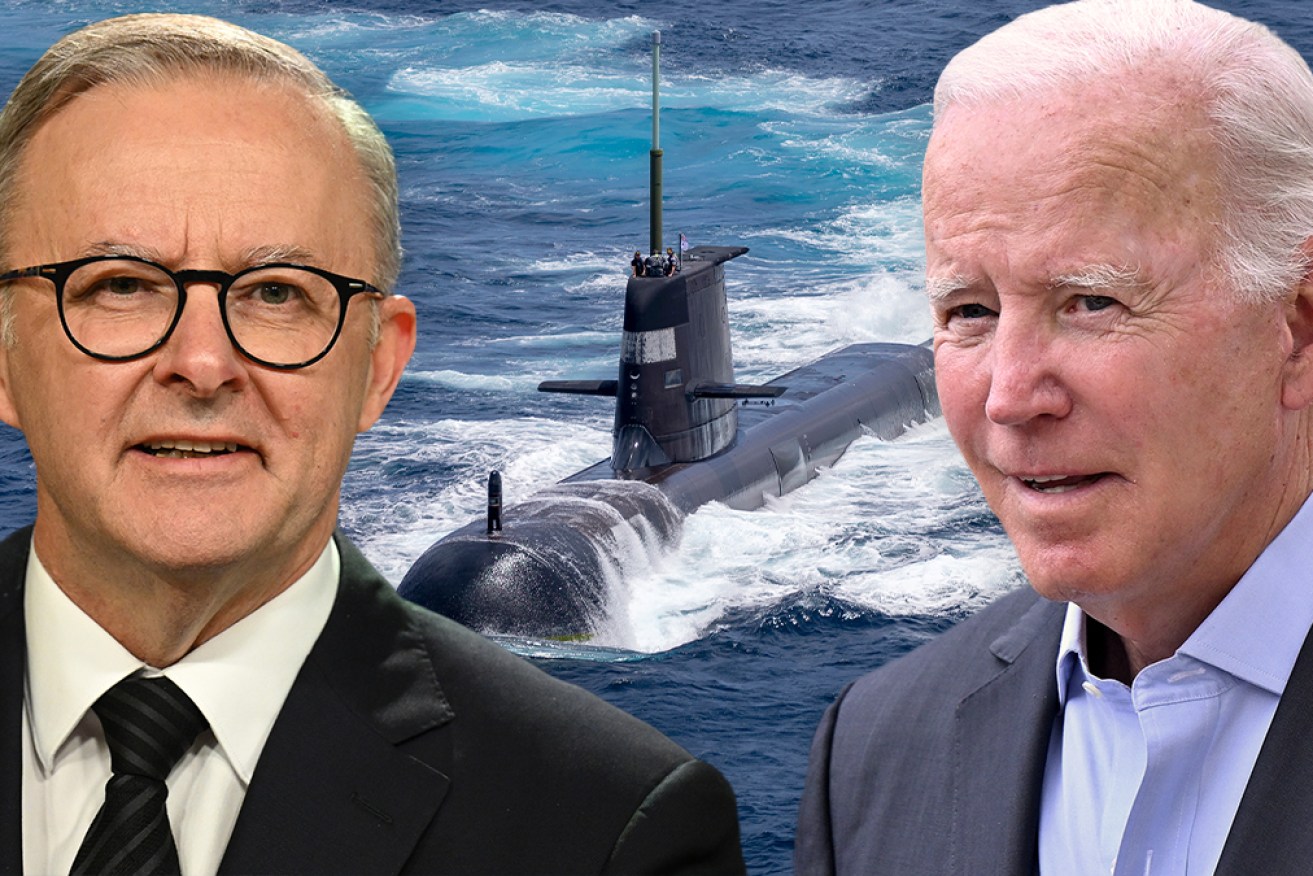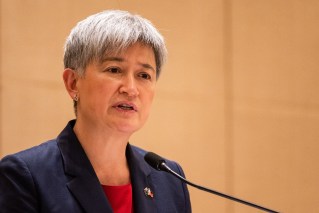The reasons why Labor embraces AUKUS with so little dissent


The AUKUS pact cements Australia's defence relationship for decades to come. Photo: Getty/TND
A little more than a decade ago, Anthony Albanese made a stirring, principled anti-nuclear speech at Labor’s national conference.
On Friday, he united party delegates on AUKUS, a deal leading to Australia’s acquisition of nuclear-powered submarines and the accompanying tricky issue of disposing of nuclear waste, which the PM had earlier spoken against.
Have the circumstances or the man changed?
There were shouts of dissent, but delegates voted overwhelmingly for a resolution praising the agreement that opens the door to top-secret military technologies such as artificial intelligence and quantum computing.
Perth MP Josh Wilson said it posed too many risks and deserved more public scrutiny.
“Labor has a history of applying scrutiny and critical judgment to military and defence matters in the national interest when too few are prepared to do the same,” he said.
Mr Albanese said he had been persuaded by advice that Australia needed nuclear-propelled submarines for its future defence.
‘What the world is’
“We have to analyse the world as it is rather than as we would want it to be,” he said. “These are the choices of a mature nation.”
Mr Albanese is not the first prime minister to adopt more pragmatic views on foreign and defence policy while moving from a faction leader to the nation’s highest office.
John Blaxland, an ANU professor of international security, suggests that the budgetary cost of alternatives has often made a persuasive case for the American alliance.
The submarines will cost $368 billion over three decades.
The late security expert Des Ball estimated that securing a neutral and independent Australia would require the defence budget to double. It currently runs to $50 billion a year.
But Professor Blaxland argues that the dividends from the alliance have proven more persuasive than the costs of the alternative.
He points to the transfer of new technologies under AUKUS and Australia’s intertwined intelligence and satellite communications network developed over 80 years.
‘Hugely invested’
“We’re hugely invested here,” Professor Blaxland said. “It would be more than foolhardy to walk away from.”
Defence Industry Minister Pat Conroy was heckled for comparing opponents of AUKUS to those who advocated appeasement.
Professor Blaxland suggested technological advantages have more to do with escalating competition between states in grey areas, such as foreign interference or influence over countries like the Solomon Islands, than repelling invasions.
“It’s not about war,” he said. “It’s about everything short of war.”
But the politics of the American alliance, which inspired rowdy debates at Labor conferences in the ’80s and ’90s, have changed too.
Defence Minister Richard Marles argued for AUKUS’ delivery of 10,000 jobs in the defence industry. But for Labor’s base, the appeal of preserving the alliance now goes beyond shipbuilding.
That was then …
Decades ago and against the backdrop of the Cold War, young Labor left leaders rising through the ranks would taunt factional rivals by calling them CIA plants.
This week left delegates have spoken in praise of US President Joe Biden and his push to spend $500 billion dollars on rebuilding American manufacturing after its long decline.
It’s about developing a clean energy industry and about climate change while competing with China, which currently dominates the global market for renewable technology.
UK Labour leader Keir Starmer is behind a similar push for green union jobs.
The Albanese government has a manufacturing fund of its own.
It has also taken steps towards a deal with Indonesia to jointly build industries to develop lithium batteries to compete with China’s industry, which currently takes almost all exports of Australian lithium.







